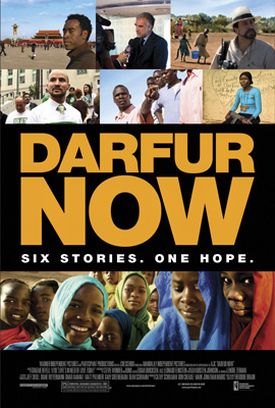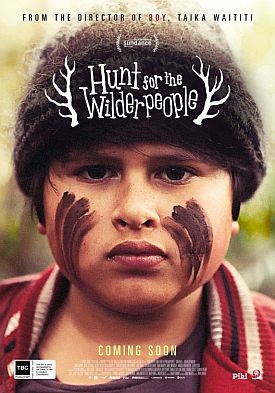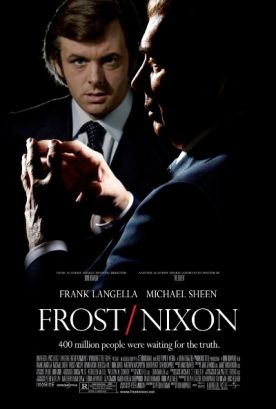Darfur Now
Near the end of Ted Braun’s documentary, Darfur Now, a student from Los Angeles named Adam Sterling is invited to speak at the ceremonial signing in Sacramento of a measure he has helped to push through the California legislature. It instructs California state pension funds managers to sell any stock they have in companies doing business in the Sudan. “To the government of Sudan,” says young Adam as Governor Arnold Schwarzenegger beams down at him approvingly. “We’re coming! Your genocide will not occur on our watch, and it will not occur on our dime!” Now I suppose that disinvestment by the state employees of California — and other states — in Sudanese oil is not quite so feeble a gesture as the petition addressed to the Taliban I was once asked to sign, pre-9/11, protesting against their treatment of women in Afghanistan, but it is not far off it.
Can even Mr Sterling or his celebrity backers, Don Cheadle and George Clooney, seriously suppose that General Omar al-Bashir, the Sudanese tyrant and clandestine backer of the Janjaweed militias that are killing so many of his non-Arabic-speaking people in Darfur, is quaking in his boots? But of course that is not really the object, either of Mr Sterling’s crusade or of this movie. The object is to make progressive- minded people feel good about themselves. At one point, Mr Sterling tearfully informs that camera of the reason for his dedication. “Part of it is guilt. I don’t want to look back in ten years and think I didn’t do everything I could.”
Well, not everything. He seems to have given no thought at all, for example, to turning his powers of political organization and advocacy to the work of promoting an Iraq-style invasion of the Sudan to overthrow its corrupt dictatorship and exterminate the marauding Janjaweed before they can exterminate the people of Darfur. On the contrary, his opposition to the Iraq war, advertised along with a number of other approved liberal causes — “Yes to the Living Wage! — on stickers and posters displayed in his room, suggests that he would be opposed to the only measure likely to bring any relief to the long-suffering Fur and other peoples of the region. You can just imagine the reaction if anyone were to whisper in his ear that the Sudanese people were better off when they were subjects of the British empire.
Mr Sterling is one of the film’s three heroes. Marginally less futile than his are the efforts of Luis Moreno Ocampo, an Argentinian prosecutor who has managed to obtain war crimes indictments against two Sudanese government officials before the International Criminal Court in the Hague. Not that he has a prayer of ever putting them on trial. Yet he remains undaunted. “I believe because I learned this in my country, that the truth will prevail.” And he remembers his successful prosecution of the former Argentine dictator, General Videla, as an encouraging lesson. “It happens all the time. People who have the power lose the power” Well, not all the time. Sometimes, as in Iraq, only an invasion is sufficient to dislodge them. Sudan seems to me a lot more like Iraq than it does like Argentina.
The third hero, Pablo Recalde, is the only one who is really doing anything very useful. He is the UN relief official in charge of getting supplies of food to those who have been cut off and chased out of their homes by the Janjaweed. We see one of his convoys to the isolated north of the region returning safely, in spite of the threat of attacks from guerrillas along the way. But that’s the nearest we ever get to seeing anything practical done on behalf of the threatened population. You’d think that Mr Braun might have made more of an effort to show us a rebel leader who could conceivably be a hero, but the few shots we have of the rag-tag anti-government forces in the Jebel Marra Mountains are not calculated to inspire either confidence in their military capabilities or admiration.
The saddest thing in this sad film is the shots of the people of Darfur as they wait for Western assistance, imagining what it will be like when “the white people” come to deliver them from their miseries, to set up hospitals and dig wells and bring electricity. They are frankly nostalgic for the days of empire. What Adam Sterling is really doing with his ostentatious display of compassion is helping to make sure that that will never happen. One of the refugee children interviewed for Mr Braun’s camera says: “I want to be a pilot. When I am a pilot I will fly to America and buy many weapons.” And then, speaking of the Janjaweed, he adds: “Like they burned us, I want to burn them.” Now there’s someone who might get something done.
The movie’s theme song by Stevie Wonder that plays over the closing credits is “Love in Need of Love Today.” But love isn’t in need of love. Love is in need of guns.
Discover more from James Bowman
Subscribe to get the latest posts to your email.





